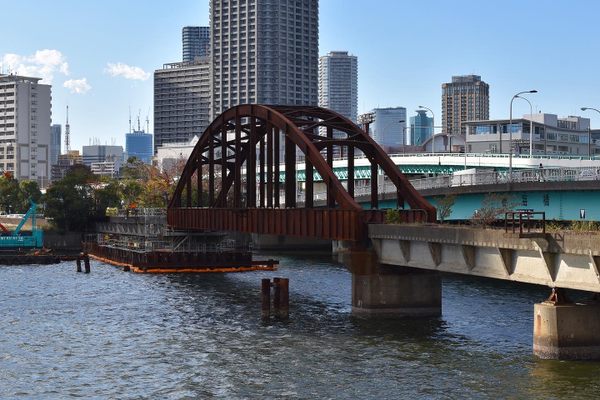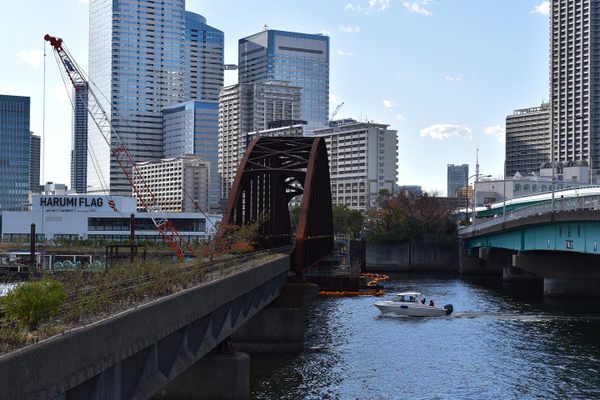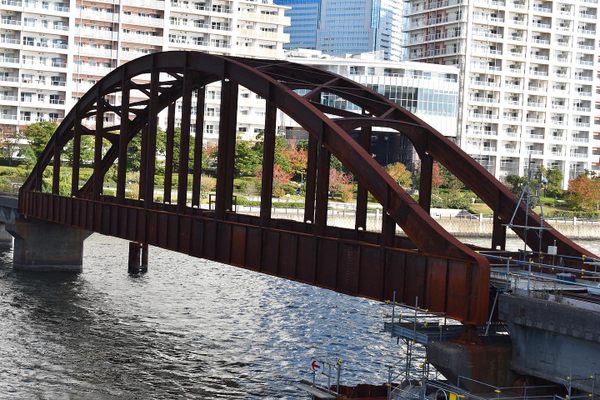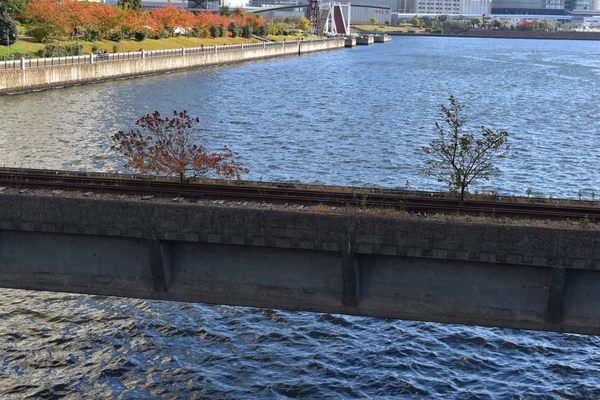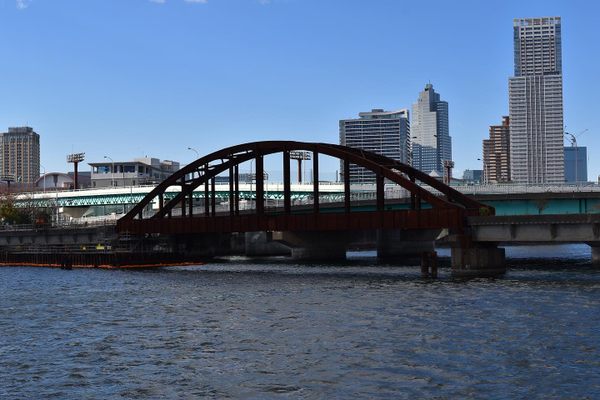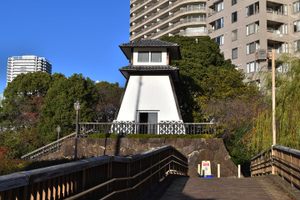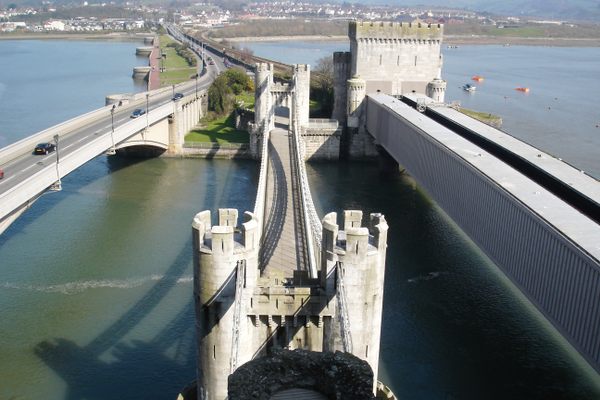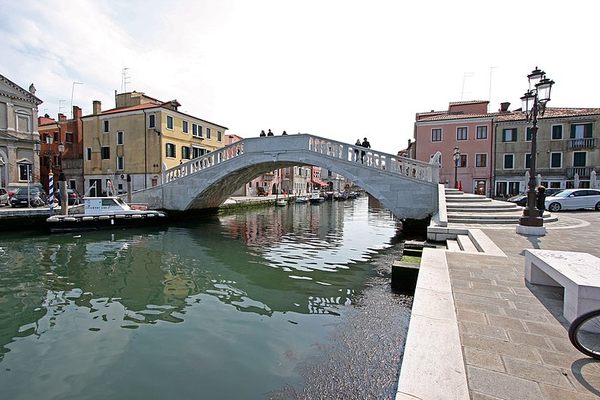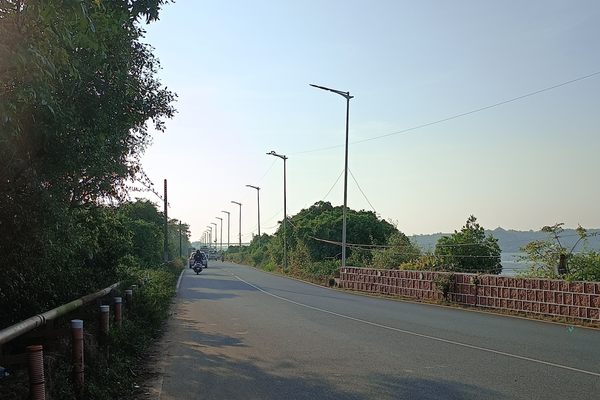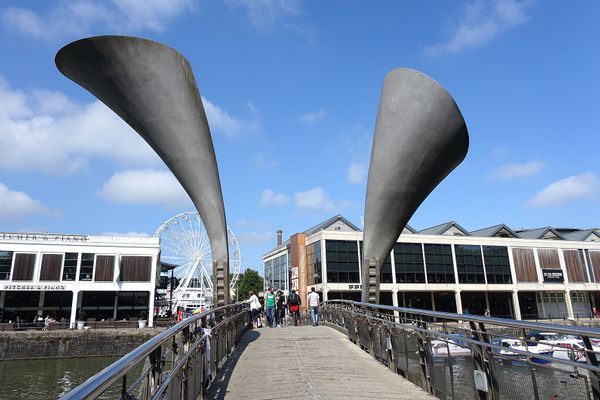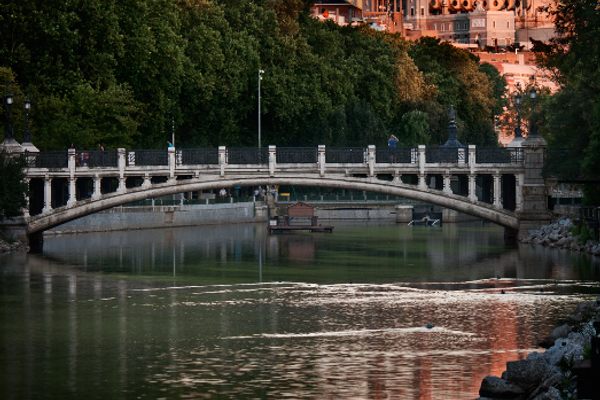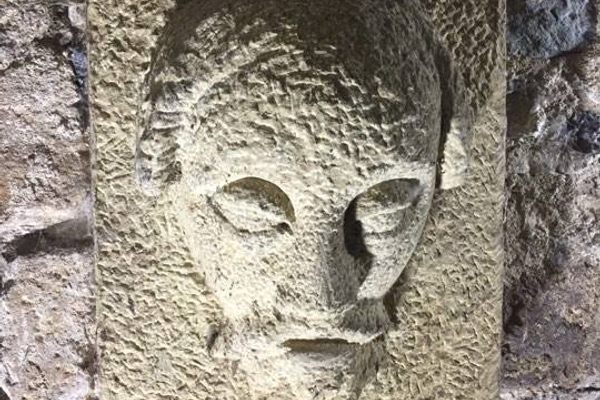About
The waterfront district of Harumi has quite a fascinating history. It started out as one of Tokyo's many reclamation projects, and in 1940, an international exposition was slated to be held here but the ongoing war forced it to be postponed indefinitely. In the end, it was Osaka that hosted the world's-fair project, which had become Expo '70 by then.
Located in the area adjacent to the Port of Tokyo, the district was in dire need of a good infrastructure of cargo transportation. But it was not until 1957 that the Bureau of Port and Harbor's own freight railway line was established, as much of the area had been seized by the Allied powers at the end of World War II.
The railway stretched for about 15 miles from the docks of Toyosu to the Shibaura waterfront, and Harumi Bridge was constructed to let the trains cross the canal, linking two city-wards with ease. Over the years of the so-called Economic Miracle, highway systems developed rapidly and the trains grew less efficient as a means of transport than trucks. This resulted in the whole railway line going defunct in 1989.
Disused for decades, the bridge with the beautiful Lohse arch was left to gather rust and is now coated with a maroon patina, a semi-popular sight among railroad aficionados. And now, the bureau's long-time dream to renovate it into a scenic promenade has been set in motion, and it is expected to open to the public—for the first time ever—in just a few years.
Related Tags
Know Before You Go
Give or take 10 minutes by foot from either Tsukishima or Toyosu Station. At the moment, the best way to view it is from Harumi Bridge Park or from the bridge parallel to it. As of November 2021, the bridge is under seismic retrofitting work, the first stage of the renovation project.
Hidden Japan: Sado Island, Nara & Kyoto
Explore a different side of Japan.
Book NowCommunity Contributors
Added By
Published
December 24, 2021
